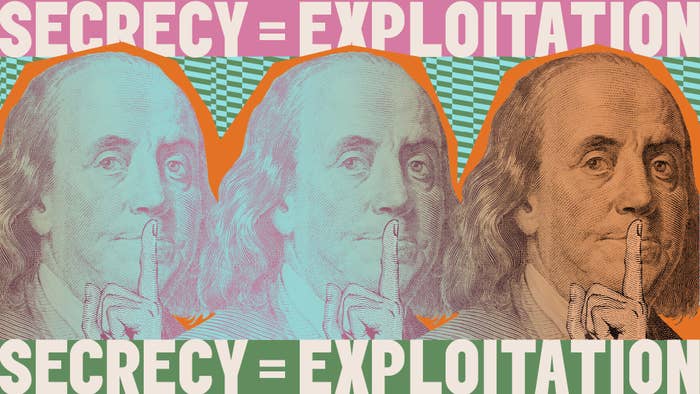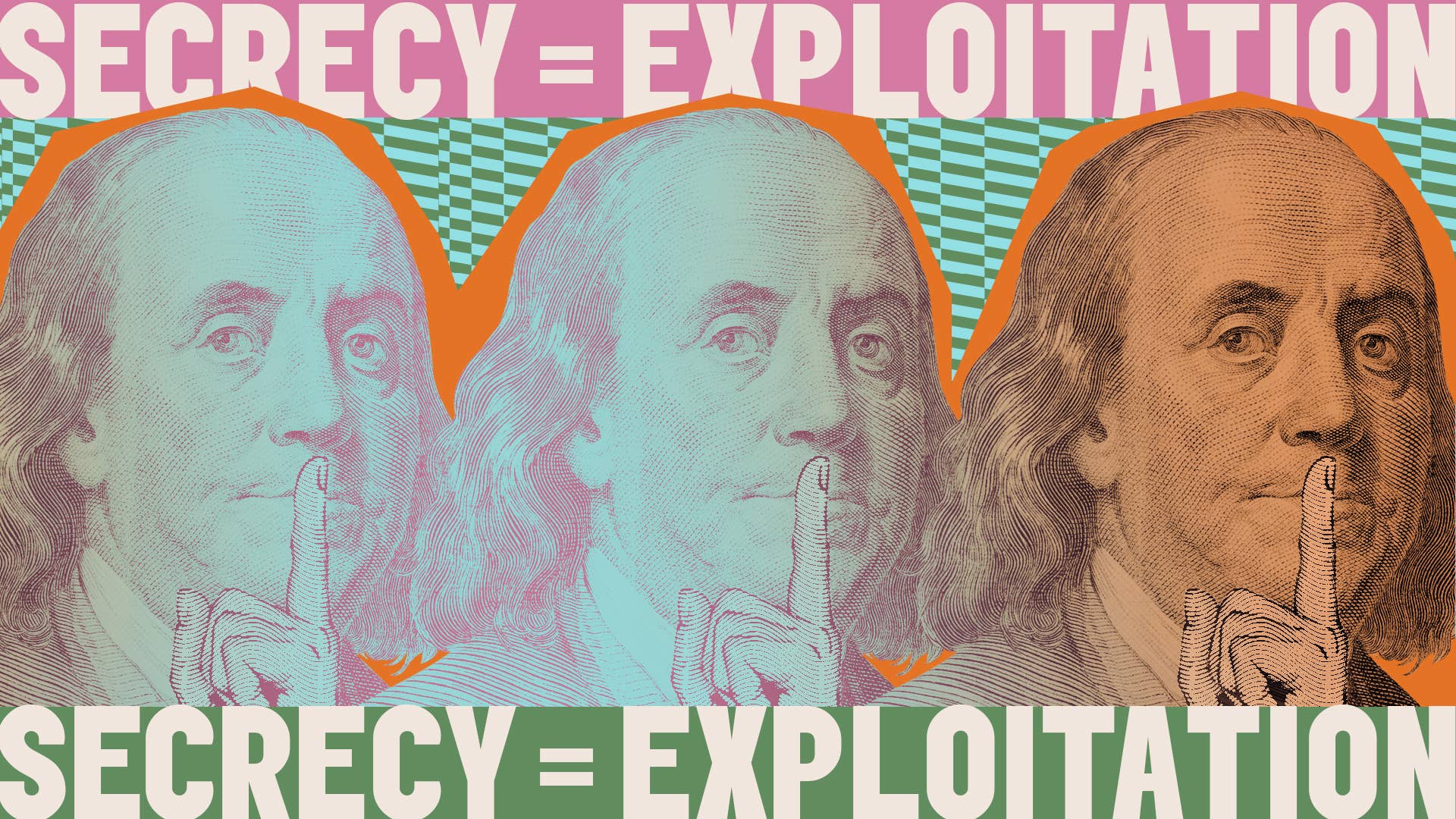
Several months back, a colleague forwarded a tweet that plainly stated something others have spent paragraphs, pages, and entire books attempting to articulate: “We cannot financial literacy ourselves out of poverty or capitalism.”
At the time, Complex was in the early stages of planning what today we’re introducing as our Get Money initiative—a content package of editorial pieces, original videos, and social-first posts dedicated to helping our audience better understand their finances and the monetary issues that most closely impact their lives. The idea, which had been periodically discussed at Complex for years, was based on a simple concept: 1) we know our audience, 2) we know that our audience is interested in topics around money, and 3) we know that when it comes to money, the system is not set up in their favor. When examining history and the flow of financial information in America, it’s clear that the game is manipulated to disadvantage Black people, people of color, women, and the young—groups that collectively make up the vast majority of our fans. I was excited to use my position as an editor and media member to, in some small way, help right these wrongs.
Further fueling the pursuit was how personal the topic had always been for me. I’m a Black man in America. Effectively first-generation middle class. I have witnessed firsthand the financial, educational, and cultural chasms that exist between the world where much of my family is from, in West Philly, and the amenity-stuffed New York luxury high-rises (and semi-frequent picturesque European excursions) of people I now interact with regularly. Places in the US that are less than 100 miles apart but feel and behave as if they operate in different universes, under differing laws of physics. The obliviously wealthy typically have little to no appreciation for the crippling, compounding effects of poverty and societal neglect on the minds and bodies of millions of my people. Just as those who are victims of deep-seated poverty tend to have a caricatured view of the wealthy, unaware of many of their advantages and the ease with which they can hoard money, knowledge, and power.
So, several meetings and preemptive back-pats later, as I was mentally power-posing with the figurative Superman cape blowing in the wind in celebration of these impending good deeds, my enthusiasm was stopped cold by a 10-word tweet from a dude with “Cat dad” in his bio.
“He’s right,” I thought. “No matter how many people we help become more conscious of their decisions with money, no matter how many start saving or investing or taking steps toward ownership, the system will always be rigged.”
I paused. The despair reflex that years of gaslighting and doomscrolling had normalized in my mind once again began to rise. “These people don’t care about us. The abuse and discrimination will always exist.”
I paused again. Took a breath. Did all the mindful shit the app on my phone told me to do.
“Wait… so what?”
Perfect is the enemy of good. Voltaire was spittin’. Good people will always have to deal with the greedy, the liars, the racists, and the rest. And while the hope is that the arc of history indeed does bend toward justice and eventually most of the bad guys are reformed or weeded out, the truth is there will always be assholes. We can’t avoid taking steps toward something good while waiting for things to be perfect.
Paralysis is not an option. We must learn, grow, and, yes, rise and grind/get this bread (or whatever other empty social media captions people use) to help make the place and time we inhabit better than the day before. Our communities being more financially literate will improve the lives of those around us. It will improve the lives of those who follow. It will increase our collective influence later in our journey. Simple as that.
Here’s what we’re up against:
- A near-unfathomable amount of money has been sucked out of our system and hoarded by only a handful of billionaires. It’s hard sometimes to even recognize how much a billion dollars really is. If you were to count 1 million seconds, it would take you 11 days. If you were to count to 1 billion seconds, it would take you over 30 years.
- At the time this was published, Jeff Bezos was worth $200 billion. According to the United States Department of Housing and Urban Development, it would cost $20 billion annually to end homelessness in America.
- The federal minimum wage hasn’t seen an increase in over 12 years, and because of inflation is worth 21 percent less than it was in 2009.
- CEO salaries have increased over 1,000 percent in the last 40 years, while the average worker’s has increased a meager 11 percent.
- The cost of college went up over 1,200 percent in that same span of time.
- We pay twice as much as the average comparable country for health care, while also somehow paying significantly higher prices for prescription drugs. Shoutout to everyone who called an Uber instead of an ambulance to save money.
- In 2016, the net worth of a typical white family ($171,000) was nearly 10 times that of a typical Black family ($17,150). Reconstruction, Jim Crow, “Black Codes,” redlining, Homestead Acts, the New Deal, the GI Bill, uneven land grabs via eminent domain, mass incarceration, police lies/corrupton/brutality, hundreds of years of racial terrorism, and the many other examples of pervasive generational systemic/institutional racism are only some of the reasons for the disparity. There’s little evidence to suggest appropriate reparations will be paid any time soon.
- Surveys regularly point out how fragile most Americans’ financial situations are. Here’s one that says 63 percent of Americans live paycheck to paycheck and 82 percent, if hit with a surprise $500 expense, wouldn’t be able to afford it.
There’s more, but you likely get the point: The world is far more expensive than it used to be, most folks are as broke as ever, and the government isn’t taking adequate steps to correct the imbalance or build a stronger social safety net to protect its citizens. Getting smarter about how we use the money we have is a necessity.
The world is far more expensive than it used to be, most folks are as broke as ever, and the government isn’t taking adequate steps to correct the imbalance or build a stronger social safety net to protect its citizens.
“But why would I participate in a corrupt system that I hope to destroy?” I get that. But here’s the thing: If you pay taxes, you’re already a participant. Who do you think pays for all the abusive crooked cops and misplaced drone attacks and every other aspect of government-funded injustice? *Cue The Simpsons Stonecutters theme song*
You’re already in the game, whether you want to be or not. If you’re an American citizen, you’ve got a jersey with a number on the back.
Now, do not confuse participation in capitalism with some ultra-capitalistic belief that all issues facing Black Americans, impoverished Americans, LGBTQ Americans, women… Americans, et al… can be solved through deregulation, tax cuts, and lunches with Jay-Z. Life isn’t that binary. Also, do not be confused into believing that wanting more money/thinking more about money is a sign of complacency or surrender in the face of a crooked system.
The crooked system is just our current reality.
If you want to change the rules of the game to be more just and equitable—or if you’re someone fighting to change the game we’re playing entirely—there’s little to be gained from complaining from the sidelines. Steal the ball. Make a shot. Show some hustle.
With Get Money, we want fans of Complex to “get” money, whether that’s applying strategies to acquire more of it or by simply learning something new. This isn’t some obnoxious financial literacy TikTok or YouTube account meant to shame low-income folks for spending their small bit of disposable income on a moment of joy with their family at a chain restaurant instead of buying a $20 fragment of a share of Amazon. This is advice and inspiration from those who’ve done it for years, learning how the financial aspects of the style and sneaker industries work, and getting to the bottom of why most of this stuff isn’t taught in high school.
Sure, suggestions from music industry experts or seeing how athletes are altering the landscape by negotiating cryptocurrency contracts clearly won’t solve all our issues, but staying keen on these topics and training ourselves to use sound financial judgment are decent baby steps. Just like Smokey told Craig—gotta crawl before you walk.
If we are to build an America that fights income inequality so pronounced that the three richest families in the country hold more wealth than the bottom 160 million people, an America that sincerely values education for both children and adults, an America where hospital bills don’t bankrupt households, an America that embraces the technological future (from a digital dollar CBDC to better protections against ransomware attacks), we need to move differently.
If better money management can even incrementally improve reality for the hundreds of millions of people currently getting screwed by today’s broken system, it’s undoubtedly worth it.
Money is a synonym for power, the answer to 99 out of 100 questions, the force that has driven America since its inception. Simply “getting” money won’t change that. There are no silver bullets. But if better money management can even incrementally improve reality for the hundreds of millions of people currently getting screwed by today’s broken system, it’s undoubtedly worth it.
It’s time we roll up our sleeves and get smarter about our habits while encouraging others to do the same. We can’t “financial literacy” our way out of American poverty, but we certainly can “financial literacy” ourselves into a better America.


